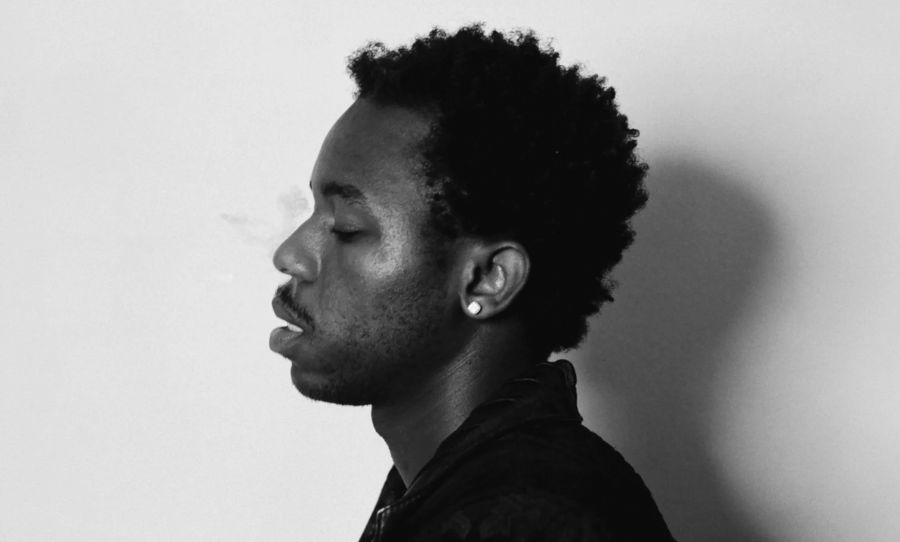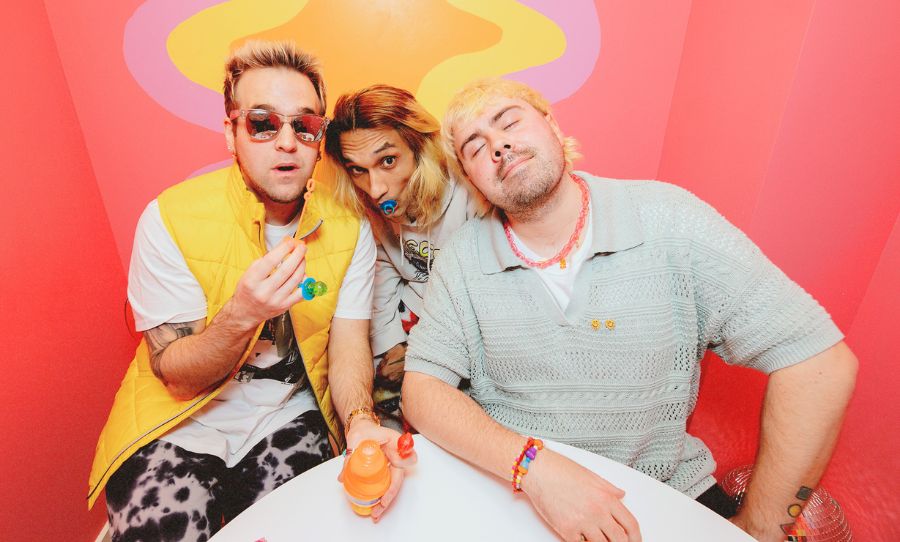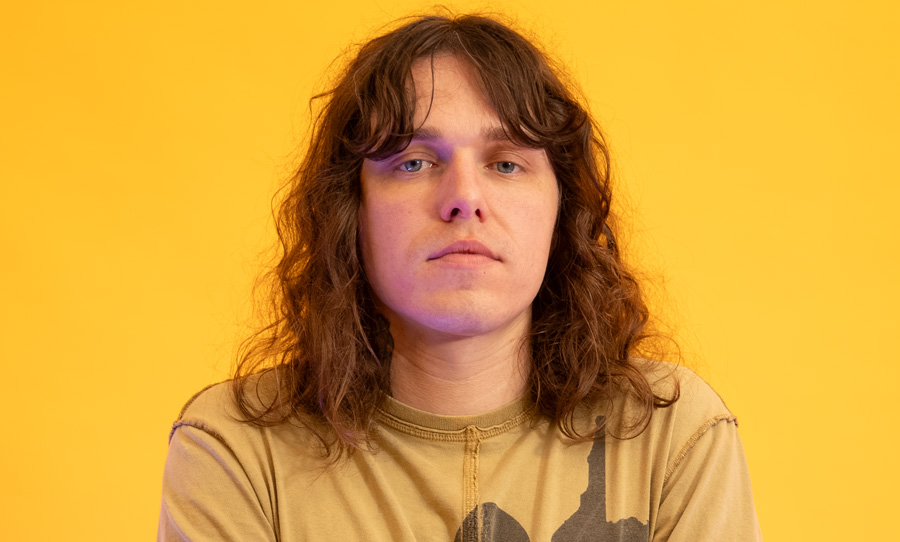It’s been about five years now since Jake Webb first released music under the name Methyl Ethel. With two EPs and two full-length albums under his belt, each release from Webb is always slightly different from the last. His live band has continued to grow, and his musical output has grown increasingly ambitious.
So now, as he gears up to release his third studio album Triage, we caught up with Webb to chat about the importance of experimentation, detaching from popular opinion, and making music for yourself.
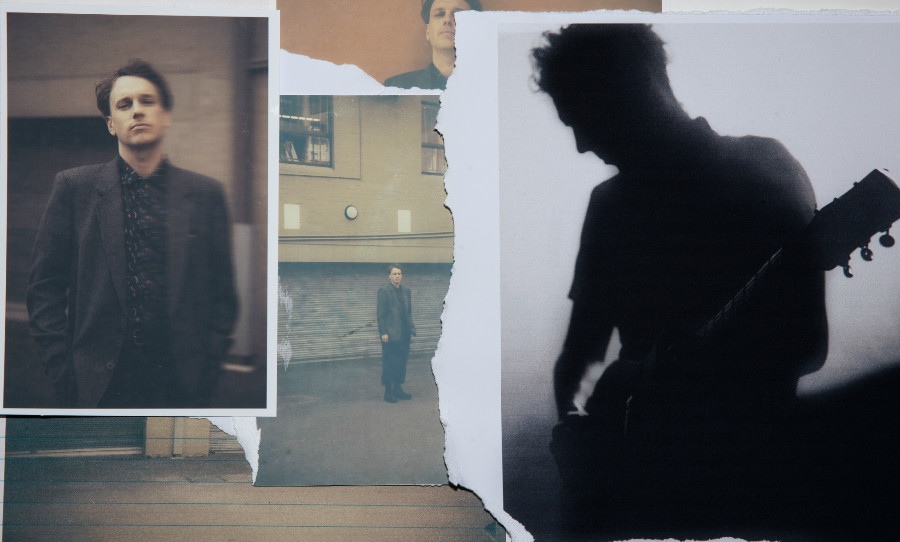
“No one wants to be a one trick pony. So while I’m doing this and enjoying it, I want to keep on making music and keep on putting it out“: we chat with Methyl Ethel frontman Jake Webb.
HAPPY: Congrats on getting the new album done! Like past albums, you wrote Triage in solitude, right?
JAKE: For the most part, yeah.
HAPPY: What was the other part?
JAKE: Well a lot of it was done in bits and pieces around the place. We were touring the last one, so there are a couple of songs that were written in all the gaps. But then this year, I really knuckled down and finished it in one space.
HAPPY: And this is how you approached past records?
JAKE: So the first record was definitely all me in one place. The second was more half-half. I produced a bunch of songs, then went and finished them with James Ford in London. This time the finishing was just done by me.
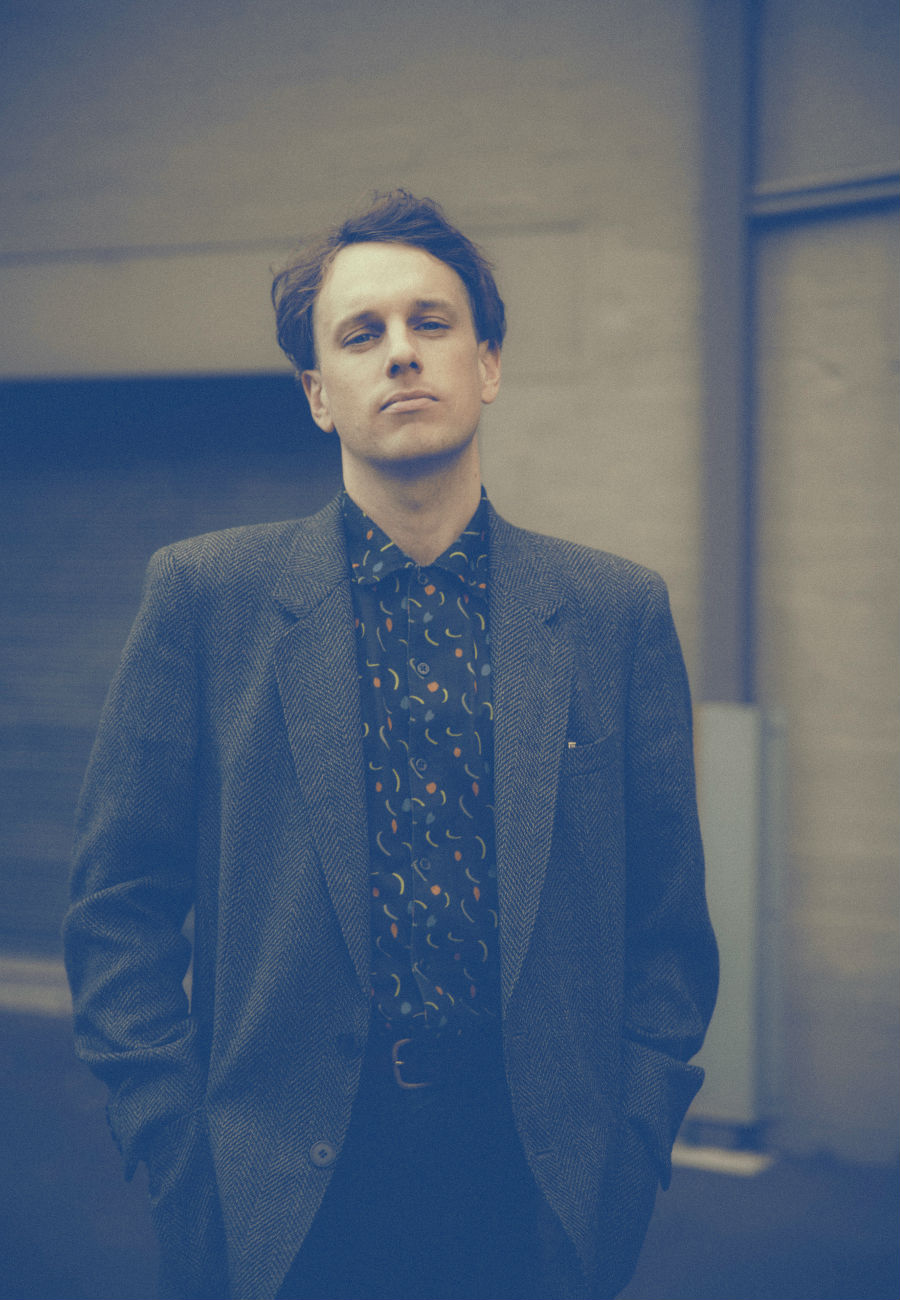
HAPPY: You seem to have always placed a lot of emphasis on the evolution of your sound. When most artists want an album to sound or feel different to its predecessor, they typically go write in a different location or try a different method. But your process seems to have largely remained the same. How do you keep your music from stagnating?
JAKE: Well, the process from song to song is very different. It’s the stuff that happens behind closed doors – no approach is the same. Every song is another experiment. It’s another way to learn how to do things better. The goal is to get better at things as you go. So obviously you avoid repeating yourself, so you avoid repeating the same mistakes. But also, you hold onto things that are useful. So the approach is always to make something different. There’s no way in hell that I’d be looking to make a record that looks to capitalise on something else I’ve done. Say people really liked one song… there’s no way I’d make a record full of those songs. I make music that I like to listen to. So there needs to be a little bit of both. This time around, I thought I’d try and design a keyboard sound that I could use to cement the songs in one place. Repeating things throughout it is one way of keeping things in the same universe.
HAPPY: Do you feel that as your band has evolved, you’ve pushed to experiment further? Do you feel like you’ve branched out further across these three albums?
JAKE: Yeah, I think so. What I felt that was really experimental in the beginning was kind of superficial experimentation. It was stuff that I thought was interesting, like ambient sounds. I was just trying to create a real cinematic landscape with it all. But there are so many more compositional things you can do. And there are a lot more internal experimental things that don’t show as much. To answer your question in a short way: It’s not like we’re trying to be different on each album for the sake of it. It’s more just trying to make something better than the last. The difference is just a bi-product of that.
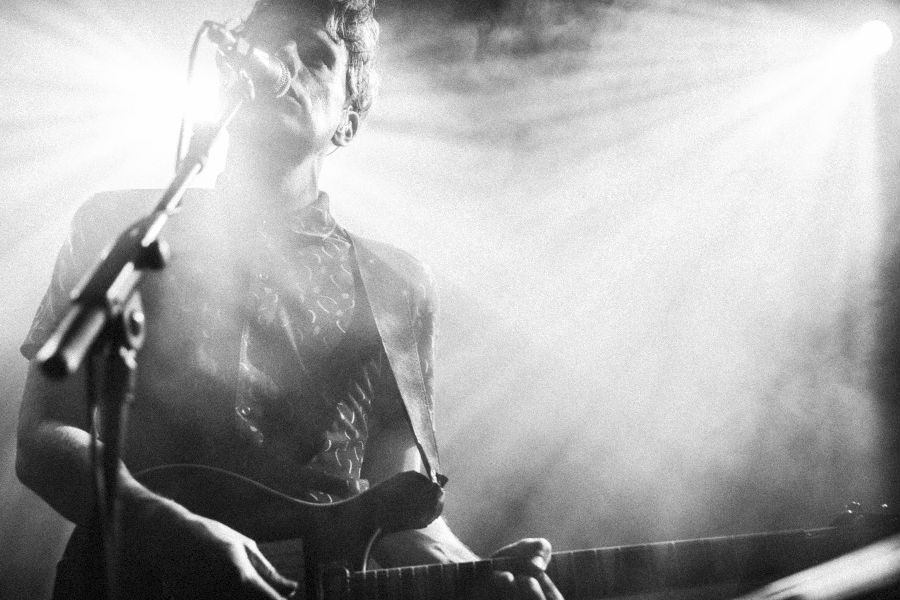
HAPPY: As your music gets more and more popular, do you struggle with balancing that process of bettering yourself and giving people more of what they loved on the past record?
JAKE: So this is the first record I’ve written where I’ve known 100% that I’m going to put something out on a particular date. That’s the only place where the pressure came from – delivering something on time. I wanted to deliver something that everyone internally would be happy with. I really like the people that I work with on the label side of things, and I really respect their opinions. That’s the only pressure I felt. But when I’m writing or producing something at home, all the pressure comes from myself. I try to ignore the populous side of things. I just want to release something that I think is good.
HAPPY: So when you’re gearing up to release a record, you don’t worry about what the audience will think of it? That’s not a consideration?
JAKE: It’s funny because the songs that I’m most proud of, they’re the songs that I care the least about. I care least about what people will think of those songs. You know, at least I think it’s good. People will love it or hate it. It’s kind of a que sera sera thing. It’s going out there into the world, and once it’s out there it’s going to be affected by the global context and whatever else is happening. I’ve definitely listened to new albums and loathed it, only for it to finally grow and become something that I love over time.
HAPPY: Example?
JAKE: I think a big one for me was Steely Dan. They were a hard band for me to get into initially. But then they find their way in, and all of a sudden they’re one of your favourite bands. Stuff can grow. That’s a cool thing actually. Once something exists, it exists.
HAPPY: Do you find that your favourite Methyl Ethel songs generally align with the audience’s favourite Methyl Ethel songs?
JAKE: I think that’s one of the funnest parts to watch unfold. Between myself, the higher-ups, and the audience, it’s always an experiment. I don’t play too much of a part in choosing singles and stuff like that. Because I don’t know anything about that. But it is interesting to see what people latch on to.
HAPPY: Have there been any instances where people have really taken to a certain song, and you’ve thought “that’s weird”?
JAKE: We’ve only played these new songs in Australia thus far, and Australia is where the most people have access to us at the moment. It’s been surprising that at the shows we have played here, people have jumped onto the new songs straight away.
HAPPY: It hasn’t been too long since you released Everything Has Been Forgotten. Was it always intended that you were going to release Triage this close to the last record?
JAKE: It was always my intention. No one wants to be a one trick pony. So while I’m doing this and enjoying it, I want to keep on making music and keep on putting it out. There are two schools of people really… people either release music consistently or not consistently at all, like a five-year gap. I just think that a few records in a row is not such a bad thing. Otherwise, you sit on it for too long. I’d end up hating it or moving past it. Then it’d just sit on the pile of stuff that I have on my computer. Stuff that’s in limbo land.
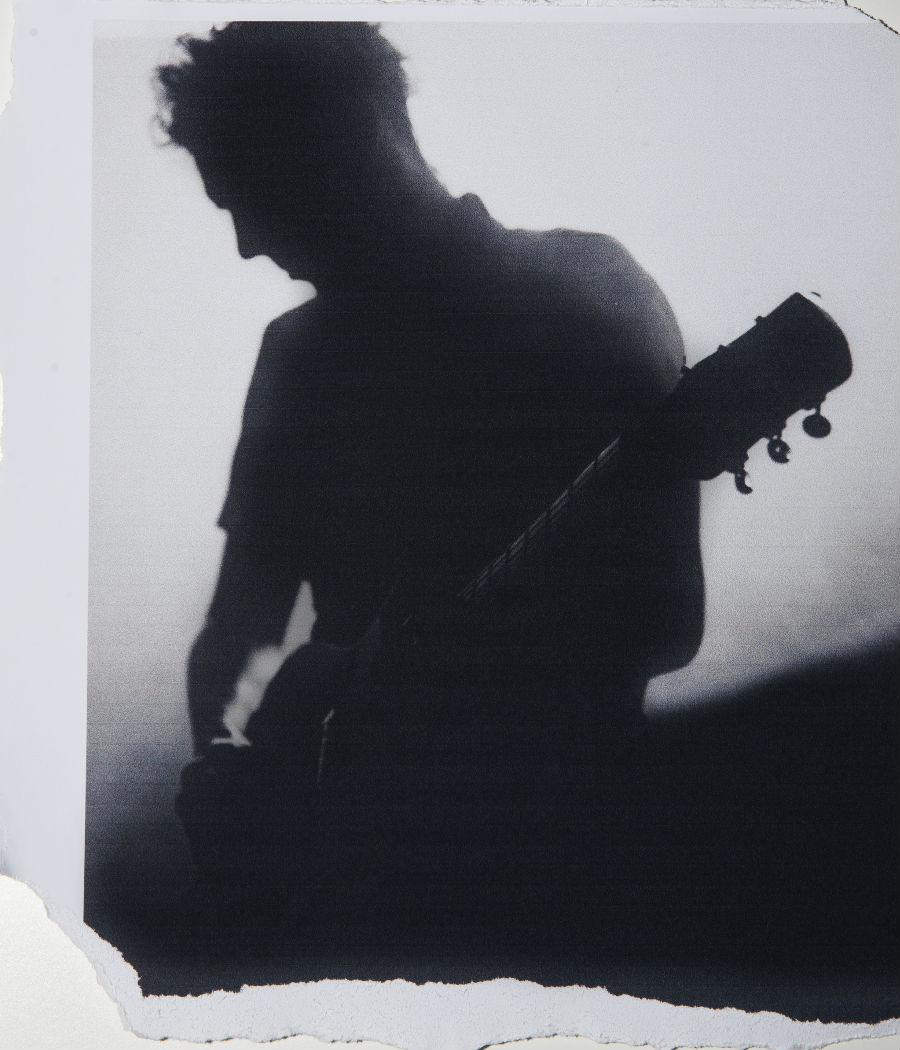
HAPPY: It sounds like you start writing one album as soon as you’ve finished the last, is that correct?
JAKE: Correct.
HAPPY: So, when you’re releasing or writing new music so frequently, do you struggle to stay passionate about past material?
JAKE: Well, keeping the live band separate from the recording process helps to ignite the flame of those other songs. I won’t listen to those recorded versions anymore. But playing them live, they become a separate thing. But on the whole, once it’s done, it’s done. It’s time to move on.
HAPPY: I did head along to your most recent Sydney show, and your live band is now five members. It seems with every release you’re growing bigger by one member…
JAKE: (Laughs) yeah…
HAPPY: Is that the purpose of the live show for you? To make everything feel bigger?
JAKE: Yeah 100%. My favourite bands to watch live over the years have always been bigger live than the records. But they also still stay true to the records. It’s all me in the studio, then there are four other human beings with their own talents and own ways of interpreting things. Having other people there to help the music grow will always be good.
HAPPY: So the live performance is a lot more collaborative for you?
JAKE: It can be, yeah. They’re not robots, so they’ll bring their own personalities into it. Which is great, in my opinion.
HAPPY: Is that something you’d ever want to try on a record?
JAKE: I’ve been thinking about it. But the closer I get to it, the more anxious I get about it.
HAPPY: Why is that?
JAKE: I think I just realised that I’ve become a bit of a control freak. But I work well on other peoples music, so maybe one day I’ll get back into it.
HAPPY: When you’ve become so attached to what Methyl Ethel is, is it ever difficult for you letting go in a live environment. Do you ever fear that things are going to get out of control?
JAKE: I think I’ve learned to be a bit more at peace with how out of my control playing live music is. I think I just arrive with the thought “something could blow up, something horrible could happen.” It’s just part of the experience. It’s something I think I can learn from.
HAPPY: As the band have progressed, I feel like you’ve steered further and further away from this idea of being a guitar band. On the new album, Post Blue felt like a big curveball for me…
JAKE: Yes, great.
HAPPY: Because you’re writing on piano now mostly, is that right?
JAKE: I’ve written most of it on piano, or just on a keyboard. Then I just put the guitars in there. I never wanted to be someone who had that real tired story of “no more guitars.” It’s just about whatever serves the song. What’s changed is the way I like to use my guitars now. It’s a new way that I use it, and it’s less chords. But it’s not like something that you’ve never heard before. Everything’s like a pattern. Nothing’s a feature. On Post Blue, that’s got loads of guitars in it. In fact, that was written on guitar. I just think that the guitars sound less like what you’d expect. They sound like keys. And it’s weird with guitars… sorry I’m rambling.
HAPPY: No, please do.
JAKE: It’s weird because ‘guitar band’ has sort of become a dirty word. It’s kind of become this hyper-masculine thing. Which isn’t to say there aren’t heaps of great female guitar bands. But there is a sort of stigma about dudes with guitars. In one way, playing guitar live is like a crutch. It’s a way of relieving the anxiety about everything.
HAPPY: Well, with your most recent live shows, I think that was the first time I’ve seen you where you haven’t been holding something. Was that difficult at all?
JAKE: Yeah, well it’s all about what needs to be played. If there’s no part in the song that needs me to play guitar, then I’ll put the guitar down.
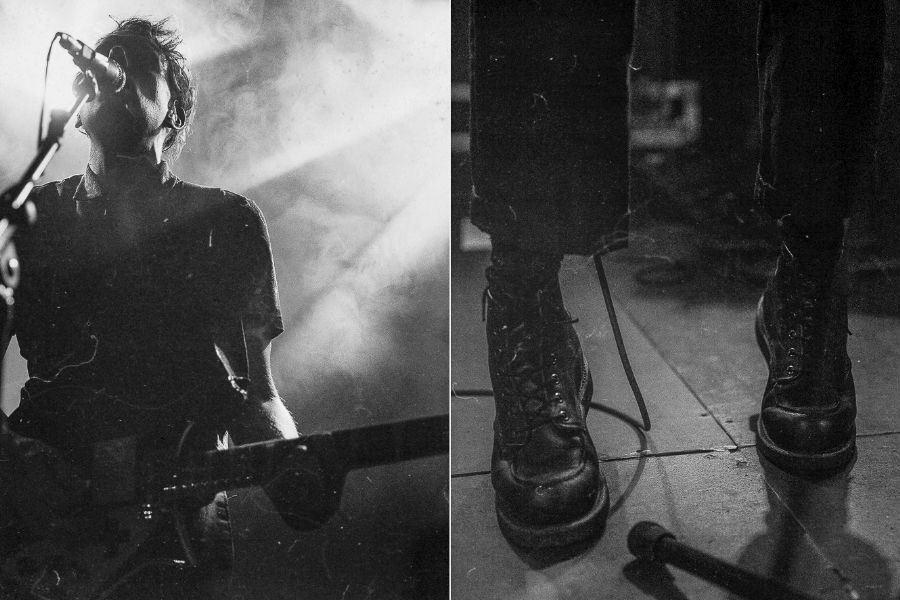
HAPPY: Now, I know you like to leave your lyrics open to interpretation. So, in this modern age of rapid music consumption, when a lot of people don’t take time to sit and ponder over lyrics, what are the benefits of interpretive lyrics to you?
JAKE: Well, all of my lyrics are meant to be immediate. I’m fully aware that there’s a deeper level listening, and that so much of that intellectualising of music comes from the written press. There are sounds and vowels that are there to serve the song. The lyrics serve the song just as much as a guitar serves the song. It’s a way of grabbing attention and setting up a conversation between myself and the listener. I understand that I’m speaking directly to someone. Then, I try and make sure that what I’m saying comes from somewhere honest and true. Trying to cover all of that can sometimes be seen as cryptic. It’s not like poetry, you’ve got a lot more that you need to fit into a song. It’s very restrictive in a way. I don’t try to be super cryptic, or make it to require interpretation. But in this day and age, with a high level of consumption, I think it’s fine for music to be interpreted. You know what it’s like, you can read into Beyoncé’s lyrics just as deep. People will write New York Times articles on how relevant and deep some of the most seemingly vapid lyrics are. So, that’s my answer.
HAPPY: You’re putting it out there, and people can do what they want with it.
JAKE: Yeah. You can use context and what I’ve said to try and build a truth behind the story. Or you can make up whatever you want. I don’t really care what you do with it. Like it or loathe it, it’s out there.
Triage is out February 15th. Catch Methyl Ethel live at any of the dates below:
February 2nd – Laneway Festival, Brisbane, Brisbane Showgrounds
February 3rd – Laneway Festival, Sydney, Sydney College of The Arts
February 8th – Laneway Festival, Adelaide, Hart’s Mill
February 9th – Laneway Festival, Melbourne, Footscray Park and Gardens
February 10th – Laneway Festival, Fremantle, Esplanade Park
More info here.
